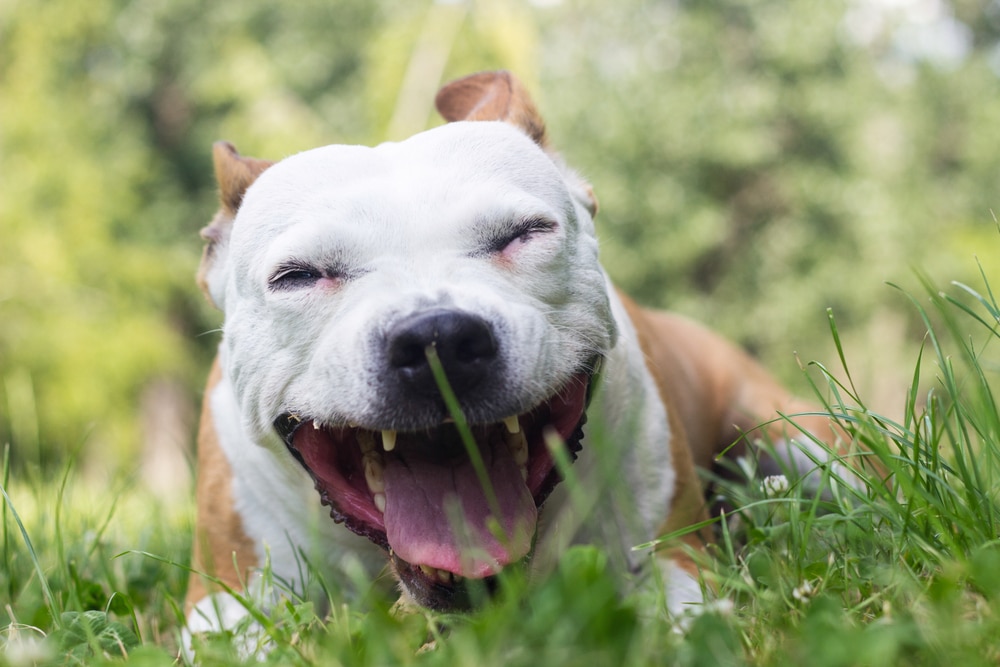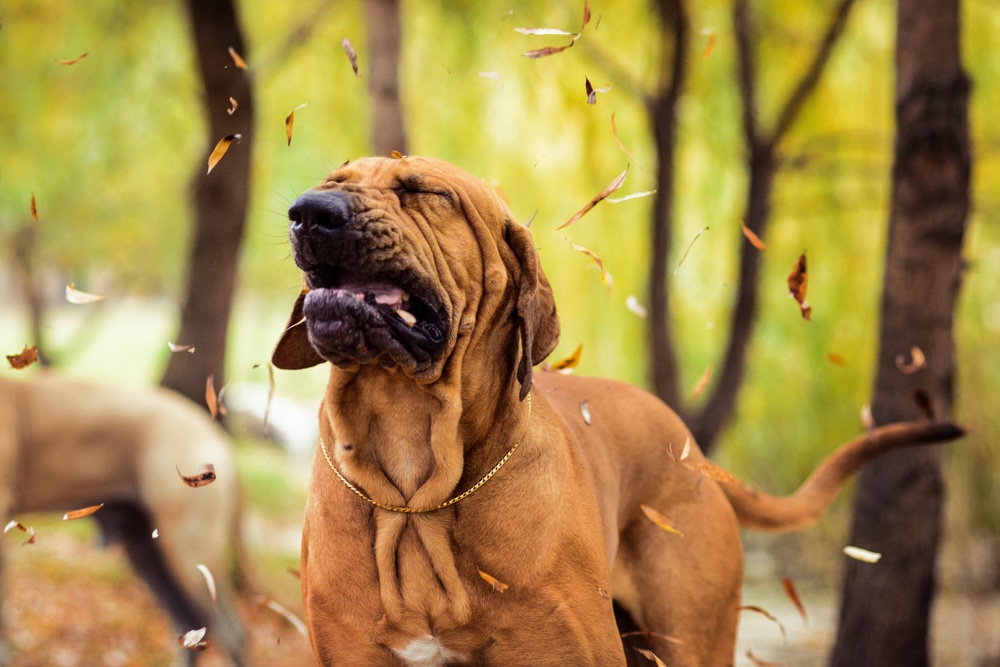Dogs frequently sniff everything around them and thus continuously face the challenge of breathing in various particles. When any particles goes inside the dog, defense responses such as sneezing, mucus production, and coughing are initiated, but if a dog is continuously coughing, this indicates an alteration of the respiratory tract. In this article, I will review why your dog is coughing.
When a dog is coughing, it means the dog’s body is trying to clear a particle out of the airways. Alternatively, the cough could also be a response to dysfunction in other parts of the body such as infection, mucus removal, and heart disease.
Table of Contents
What Are A Dog’s Defense Responses Other Than Coughing?

When dogs are exploring the world, they use their snout for smelling. By doing so, they get in close contact with small dust particles that will cause a temporary cough to get rid of it.
The dog could have other responses to get rid of the irritating particle though. This will depend on the site the particle gets into such as the snout or lung.
For instance, if the dog inhales big particles, they can get stuck in its snout. This normally initiates sneezing to remove them. This is more common to happen in the spring due to the pollen from blooming flowers.
But if the particles are smaller than pollen such as air pollutants and biological particles such as bacteria or viruses, they would be able to get further. They could even get to the lung thereby irritating the pulmonary tissue and producing phlegm to remove the pollution.
What Produces Coughing In A Dog?
The respiratory tract is composed of the nasal cavity, larynx, trachea, lungs, bronchus, bronchi, and alveoli. Depending on which of these is affected, the body will respond differently. When a dog is coughing, it is because there’s an issue in the bronchi, trachea, or larynx.
However, if something is affecting the lungs, phlegm and mucus production is the natural response for removing the cause of the irritation. On the way out, that phlegm will stimulate the bronchi, making the dog cough and thus removing the mucus.
Thus, a dog cough is a clinical sign, meaning that something is affecting it, and we need to pay attention to it. However, if the dog continues coughing, then it’s definitely time to take them to the vet to get some more information.
Some Pathogenic Agents That Cause Coughing In A Dog
However, when dogs are sniffing around, they get in close contact not only with dust and pollen but also with infectious agents that can make the dog sick. For example, when smelling other dogs´ poop, they are exposed to bacteria, viruses, or fungi. Thus, if the dog got an infection affecting the larynx, trachea, and bronchi the body will respond by producing coughs repeatedly, plus the other symptoms of the illness.
However, if the infection is affecting the alveoli, bronchi, or lungs, coughs remove the mucus produced for defense. In this case though, the main symptom would be difficulty breathing instead of coughing. And if the infection is in the nasal cavity such as sinusitis, there would be mucus production as well, without coughs as the mucus would just get out helped by sneezes.
Other Cough Causes
In addition to infections or foreign objects affecting the airways, having partially or completely blocked the airway causes coughing in dogs too. For example, when the dog is presenting tracheal collapse. Likewise, if the dog has heart disease, it might cause your dog to cough frequently. This is due to the connection between the respiratory system and blood circulation.
Additionally, smoke and irritating gases from chemicals can cause temporary coughs in dogs if they inhale enough to get respiratory tract irritation. Thus, be careful at home when storing chemicals, so you can help prevent your pet from breading irritating gases.
What To Do If Your Dog Is Coughing?
Most of the time, the cough would resolve the issue by taking out the particle. However, if the dog continues coughing over an extended period of time, or if the cough persists, visit the vet so they can take a closer look.
However, mind that you can help your dog get relief while you wait for the vet appointment. For instance, you can give honey to the dog. Up to 1 tablespoon a day for large breed dogs or 2 teaspoons for medium dogs. Likewise, keep your dog hydrated all the time.
Lastly, avoid sudden temperature changes, especially when taking the dogs out for a walk in winter from the warm interior of the house. Make sure to protect the dog from the cold and humidity.
Health Tip
When the dog coughs, beware if it’s deep, wet, or dry. In this case, definitely get help from the veterinarian to determine the cause of the cough and get treatment.
Conclusion: Why Is My Dog Coughing?
In conclusion, when a dog coughs, it means that the body is addressing the threat, which is a good thing. If it goes on or seems severe though, it’s time to give the vet a call.
So, what do you think? What was most interesting to you from this article? Let us know your thoughts and why in the comments below!
